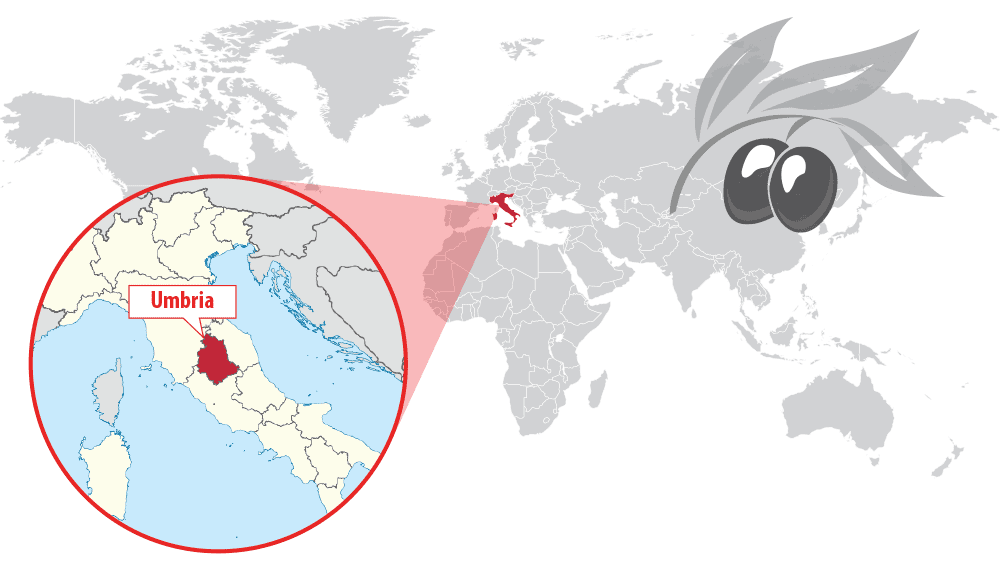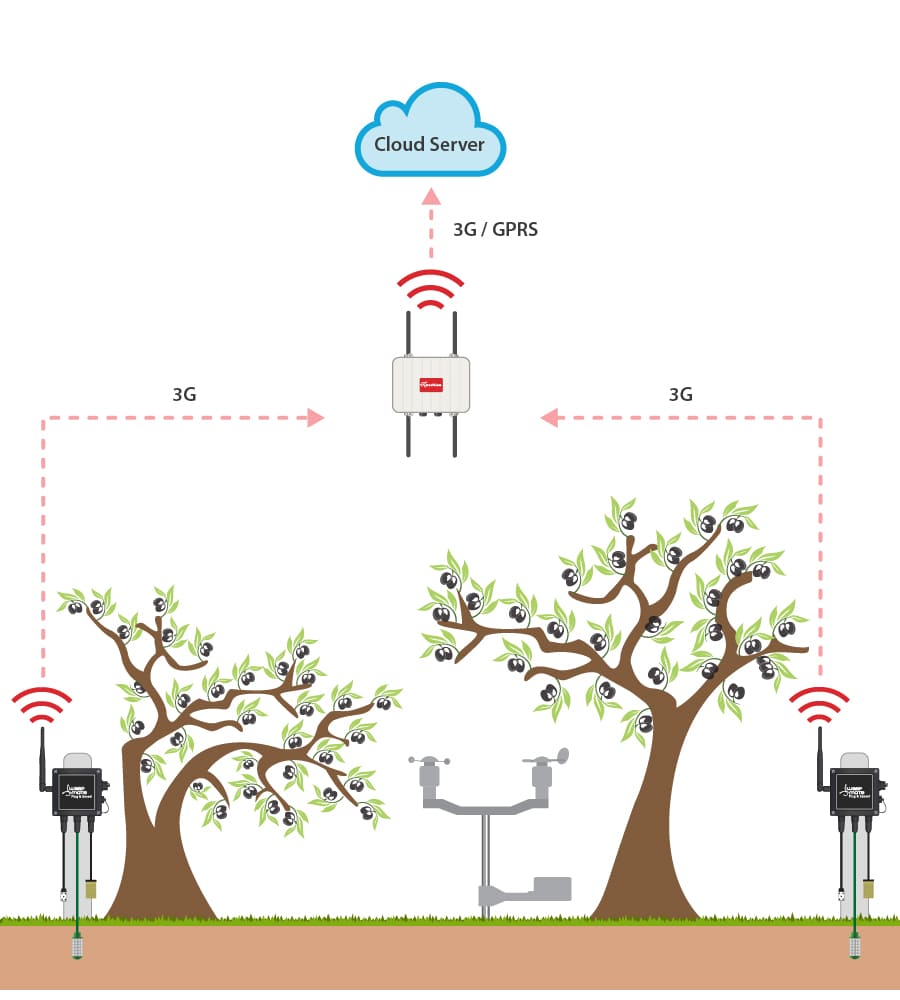Olive producers are an essential part of agricultural sector particulary in Italy and, in general, in southern Europe where they represent a significant share of the agricultural economy.
More than 1.8 million farms work on olive production in the EU. 40% of all farms are in Spain and Italy, and 60% in Greece.
The olive fruit fly, named Bactrocera oleae, is a serious pest for olives. The larvae attacks in olive fruits and the damage caused in the fruit by tunneling of larvae in the fruit results in important losses of the crop.
TeamDev, an Italian software company, uses Libelium’s
Waspmote Plug & Sense! Sensor Platform to collect information localizing weather conditions to support farming management.
TeamDev works in precision farming sector, developing software and methodologies for decision support systems in agricultural management. This company has involved in many innovative projects related to agriculture with the aim of improving technological systems for monitoring crops.
In this case, TeamDev has been working in tight collaboration with
Assoprol Umbria, an organization of Umbrian olive producers, to develop a web platform to collect information about the presence of olive fruit fly and to support a timely action and a defense plan.

Umbria, Italy
Data to predict flies diffusion
In the developed software, farmers can enter data about traps and adults of olive fruit fly captured. This software presents also data from the motes that is useful to create the model of fly diffusion based on weather conditions in each olive grove.
Model can predict the diffusion of flies, a useful tool to elaborate attack alarms in an early stage of fly spread. Timeliness allows protective measures against olive fruit fly, containing damage of drupes and production’s losses. With production losses avoided with the deployment, the farmer covers the technology investment within a year.
From a quantitative point of view, larvae cause the damage by the removal of the significant proportion of the pulp which as a consequence results in reduction in the yield of olives. Part of the production is also lost due to premature falling of the attacked fruit.
A qualitative aspect is the significant deterioration in the quality of the oil extracted from olives with a high percentage of attacks by larvae. Oil obtained from infected olives has a high acidity level (expressed as oleic acid, from 2% to 10% depending on the percentage of the infestation) and a lower shelf life as it has a higher peroxide value.
The predisposition to the fly’s attacks is tied to several factors. The main ones are climatic (temperature and rainfall), so marked differences can occur from year to year.
To control olive fruit fly, a combination of three techniques must be used to determine when to apply insecticides: (1) traps, used to capture adults and verify the growth of population in the olive grove; (2) study of the larvae in the olive and their damage after sampling and observation in laboratory, (3) monitoring weather conditions conducive to the growth of fly’s population. The results of both techniques provides information about fly spread.
TeamDev uses
Waspmote Plug & Sense! Sensor Platform to offer its customers a service for monitoring specific weather conditions in each plot, like temperature, humidity, rainfall, atmospheric pressure among others. Weather data integrates other information in software developed for farming management. Sensors permit scientific observation and measurement that represent an innovative way to manage critical agricultural operation. Moreover, the impact of the fly on the acidity of the oil obtained from olives, decreases the retail price of the crop. So, avoiding pest, increases the quality of production and rises the retail price.
Teamdev chose
Waspmote Plug & Sense! Sensor Platform because of low cost compared to quality and to traditional weather stations, and also for versatility of the code and flexibility of its usage.

Weather monitoring schema
“The use of sensor allows to provide a new service to Teamdev’s customers and extend skills and areas of activity. Precision farming has become the future way to manage crops for the continued supply of food within the ecological, economic and social limits. The ability of these devices to enhance and enable day-to-day monitoring promises increase agricultural efficiency”, explains Andrea Cruciani, CEO at Teamdev.
“This case about pest management in olive groves is a good example of the important applications that
Waspmote Plug & Sense! Sensor Platform offers to plan “just-in-time” treatments based on weather condition and also to build predictive models”, says Alicia Asín, Libelium’s CEO.
Sensors provide accurate information about important parameters: ambient temperature, humidity, millimeters of rainfall, atmospheric pressure, wind direction, wind speed, soil moisture, leaf wetness. These parameters are essential to evaluate climate peculiarity in each area and to control growth’s environment.
Sensors are installed in areas where local weather information are unavailable because of absence of other weather stations. Each sensor has a solar panel that ensures a longer power autonomy of the devices.
The
Waspmote Plug & Sense! Sensor Platform are connected by
Meshlium to a cloud service of
ArcGIS online, an
ESRI geographic platform, that collected all data and geolocating them in maps. Data from each mote are sent hourly time and are available for monitoring crops remotely almost in real time from a location distant than plots by computer or mobile device. ESRI platform is fully compatible with
Waspmote Plug & Sense! Sensor Platform what was an advantage for TeamDev.
Thanks to
FIWARE generic enablers and the
NGSI specifications we have been able to collect context information coming from sensors and using them for the user interface of the application and sending them to the Big Data storage for further analysis.
TeamDev has developed specific software to integrate this data in a web interface for manage farming, that can be considered a Decision Support System (DSS). In addition to weather information, software offers other information about crops like productivity, presence of pathogens, treatments, and other specific details. All this information is processed to support farming management or to build predictive models about pest diffusion, treatments programming only when it is absolutely necessary and just in the right time.
More info:
References:
Contact
Libelium Sales Department for more information about our products.
Do you want this case study in pdf?
Download it in English🇬🇧 and Spanish🇪🇸 directly to your inbox.
Download



















